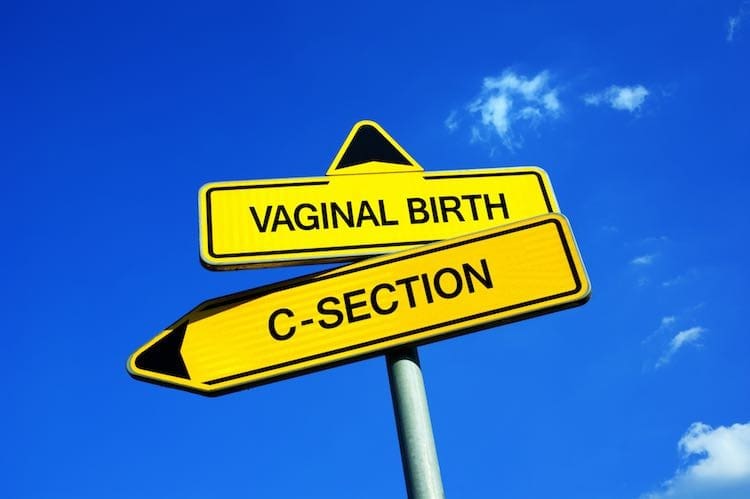Rates of caesarean birth in Australia are high, on par with the rest of the world. One third of Australian babies are now delivered by caesarean – and that can be for a range of reasons, including that the baby isn’t oriented for birth, labour doesn’t progress as planned, or that labour is risky for you because of other health conditions. Women may also elect to have a C-section. But how do babies born via caesarean section fare compared to vaginal birth babies? That’s what this Australian study set out to find.
Researchers looked at a large dataset of women who had given birth in New South Wales between 2001 and 2008. They categorised them by the way in which they had their baby – a vaginal birth, elective caesarean surgery, an emergency caesarean, and instrumental birth (the use of forceps or vacuum to help deliver the baby). They also considered a range of factors for the mother, and excluded women who smoked, took drugs, who were outside the age range of 20-35 years or who gave birth early or late. Similarly, they excluded babies with a low birth weight or who had minor or major congenital conditions. This limited the number of outside factors that could confuse the results. The final analysis looked at almost 500,000 women and their children.
The researchers found that compared with children delivered by vaginal birth, those who were born by caesarean or with the assistance of instruments were at higher risk of jaundice and feeding problems (except elective caesarean didn’t increase the risk of jaundice). Over the long term (the next five years), children who weren’t born by vaginal birth had a higher risk of respiratory infections, metabolic disorder and eczema. Overall, the researchers say children delivered by vaginal birth had fewer short- and long-term health problems.
Implications
It’s not clear why babies born by caesarean should experience poorer health outcomes than others. Some research suggests it’s exposure to microbes during a vaginal birth that influences a child’s gut microbiota in a way that’s protective. There are a variety of reasons women may have a C-section and it’s often necessary, but if a mum-to-be can choose, this research suggests their child may benefit from a vaginal birth.

